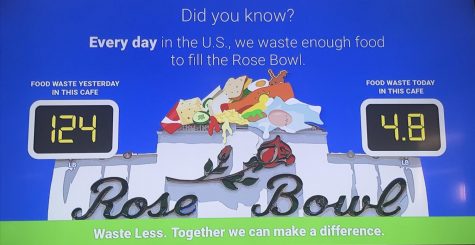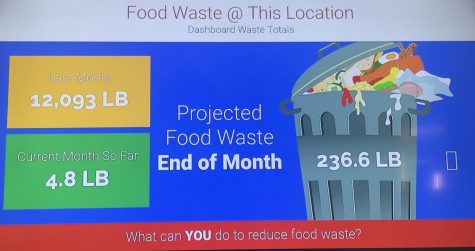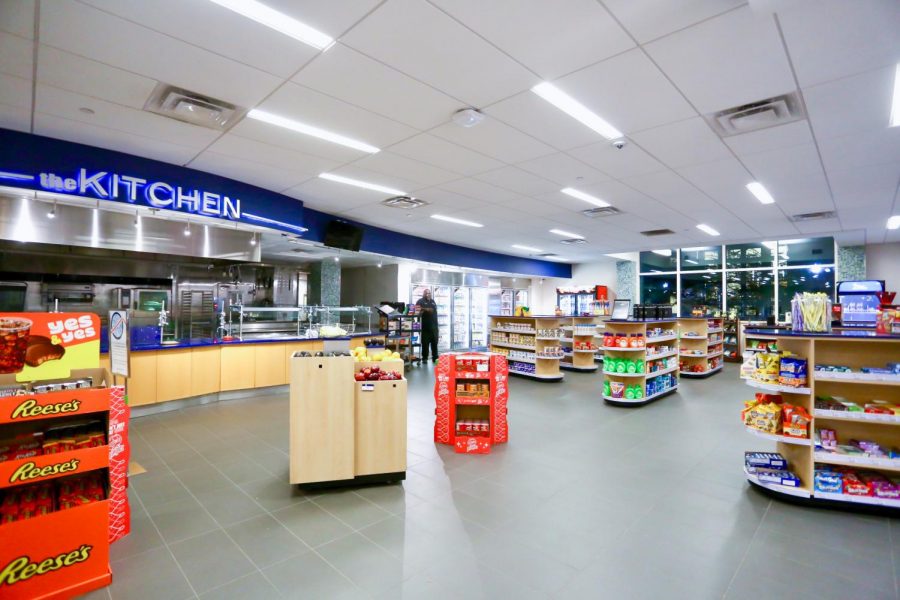Editor’s Note: After publishing this article, the editorial staff learned that Campus Dining has plans to implement a program to allow students to donate their sides at any point during the year. The program, constructed in partnership with VSG, will be rolled out by the end of this week, Campus Dining Marketing Manager Jessica Williams said.
The money collected from donated sides will go to Second Harvest Food Bank, Williams said. However, this can be shifted throughout the year if VSG designates other recipients. For example, VSG could decide to donate the funds toward natural disaster relief.
“Hi, welcome to Local Java!” I say as a new customer approaches the campus cafe. “What can I get for you?”
Throughout my time working at Local Java, I’ve noticed that most students during the “my-last-full-class-just-ended-and-now-I-have-a-long-ass-bio- lab-and-need-coffee-NOW” afternoon rush use a meal swipe to get a cold brew to keep them awake, and maybe a sandwich and another side. Yet, so many throughout the day just want a drink and that’s it. However, because of Vanderbilt’s required purchase of meal swipes, they’ll waste their two sides and walk away enjoying their matcha latte with skim milk, not thinking twice about it. Later, while measuring the compost, we have to toss a lot of the unbought food as we get ready to close.
Despite Vandy’s applaudable composting efforts, it is evident that the surplus food we compost could be put to better use by feeding hungry Nashvillians, in order to protect the people who live on the planet we’re trying to save.

In the United States, food waste is about 30-40 percent of the food supply, according to the U.S. Department of Agriculture (USDA). This percentage is estimated to equal 133 billion pounds. The Food Recovery Network reports that college campus dining is responsible for about 22 million pounds of that. It is because of that those facts that Vanderbilt’s recent composting initiative is one of my favorite programs the university has implemented to reduce the Commodores’ environmental footprint. Composting minimizes campus food waste by turning it into soil and putting it back into the earth.
Besides composting, Vanderbilt has made strides in diminishing campus single-use plastic usage by granting us all water bottles and utilizing compostable bowls and to-go containers. Because of all of the ways our university has gone green, we were named one of the most environmentally responsible colleges in 2018 by The Princeton Review. Despite all that we have done to preserve our planet, what use does saving the earth do if we don’t save the people in it simultaneously?
Vanderbilt’s “Share-a-Side” initiative is a program I (and hopefully everyone else) participate in, that takes place when high-profile natural disasters happen, whether it’s a hurricane across the country or a detrimental tornado close to home. The initiative allows students to convert our meal-plan sides to donations for victims, and warms my heart every time I do it, or a customer at Local Java does. Except, many students just want one or two items and choose to either not get a side or grab an extra bag of chips for fear of wasting their pre-paid meal. That food goes to waste, as does the money that already paid for it with tuition. When students donated to relief efforts for Hurricane Florence and Typhoon Mangkhut through Share-a-Side, we raised over $7,000. Imagine what we could do if Share-a-Side lasted year-round to donate to Nashville food pantries and banks, or at least during the holiday season.

Our university is surrounded by five food pantries. In Tennessee alone, “934,310 people are struggling with hunger– and of them 285,770 are children” as reported by Feeding America. That’s 1 in 7 people and 1 in 5 children. Imagine if 1 in 5 of us were able to donate our side, not just when a natural disaster is detrimental enough to have national coverage and give Vandy publicity. Imagine if we gave the leftover packaged food sold on campus at places like Local Java to nearby food banks instead of composting all of it? That way when the daily coffee fiends come to Local Java or Food For Thought or any of the other campus retail dining places at 2:55 PM just before bio or chem lab starts, they can order as little as they want without wasting what they do not.




Ronda Bernstein • Sep 2, 2019 at 5:55 pm CDT
Or how about being able to buy a la carte so that students aren’t wasting money/swipes they could otherwise use when they actually want a full meal. Saying the food is “unbought” is not true. Essentially, the food is being paid for with the swipe so there shouldn’t be a choice needed to actively donate. The school needs to figure out a way to tabulate the items consisting of a full meal, and whatever the student doesn’t use AUTOMATICALLY gets donated AS FOOD at the end of the day to feed the homeless THAT NIGHT. Just like recycling isn’t the solution, neither is composting. The idea is to use (stock/make less) in the first place. But, in reality, the school is counting on the students not buying as that is free money to them. Like a gift card never used by the recipient.
Lisa Grubbs • Sep 2, 2019 at 12:35 pm CDT
Such wonderful ideas about how to best utilize the leftover food. While composting is better than nothing…it is MUCH better to feed the hungry than composting usable food. Great suggestions – hope this happens on campus.